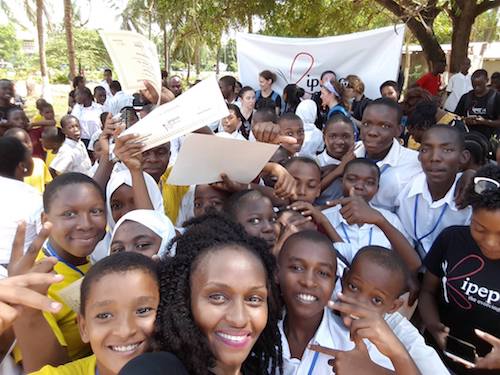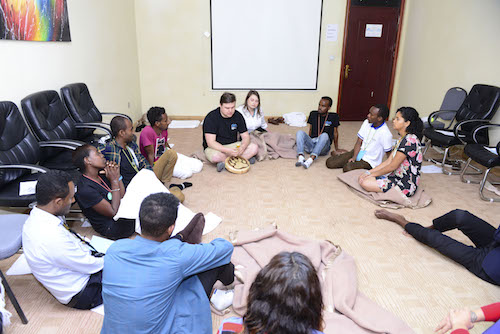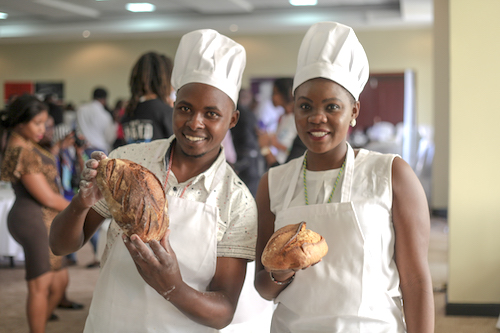3 Inspiring Lessons from the 2017 DOT Unconference
Three of our favourite insights from #DOTYouth
In May, more than 100 social innovators from across Africa, the Middle East, and Indigenous Canada gathered for the second DOT Unconference. Here are 3 of our favourite lessons.
For three inspiring days, these daring young innovators shared their business ideas and collaborated to find better ways to improve their communities. The workshops were run by youth themselves, and there was a lot of learning happening.
Here are three of our favourite lessons.
“Global ideas are useful at a local scale”
Winnie Nyato is the founder of Kipepeo “The Evolving Minds”, a social enterprise in Dar es Salaam, Tanzania, that offers a fun learning environment in primary schools by renovating the school premises and offering English coaching sessions. Her Unconference session focused on the localization of global ideas.
Winnie’s own project is the perfect example of how ideas from other places can be applied to a local context. Winnie struggled to create a new idea when she started Kipepeo — until she realized she did not need a new idea, she just needed to innovate and localize one that had already been successful in other parts of the world. Today, Winnie uses Scrabble and spelling bee competitions to make learning English fun for her students.

Says Winnie: “I realized I did not need to invent something totally new to solve the education challenges in my country. Rather, I invested my time, skills, and energy trying to innovate on global initiatives and make them fit my local setting.”
“Reconciliation is relevant to youth around the world”
For their Unconference session, Gabrielle Fayant and Josh Lewis from Canada facilitated the blanket exercise. The activity was first created to educate people about the effects of European colonization on Canada’s Indigenous people. Gabrielle and Josh represent the Assembly of Seven Generations (A7G), an Indigenous youth-led organization based in Ottawa, Canada.
Though the blanket exercise focuses on Canadian history, Gabrielle and Josh discovered it is a reconciliation tool relevant for youth around the world.

At first, Josh says exercise participants were not sure what to expect, and many had no idea about Canada’s colonial history. It was in the sharing circle after the activity that participants revealed their own stories and backgrounds.
“They talked about personal stories of being disconnected from their cultures, and about their own genocide and how it had affected their families. They also talked about wanting to reconnect with their cultures as they felt they had been colonized in many ways,” says Josh. “It was interesting to feel such a connection during the circle, even though we come from different places and different ways of life. That sharing circle truly became a space of human connection, and we are grateful for that.”
KAIROS Canada, the organization that created the blanket exercise, is already thinking of creating similar activities for other countries.
“Do not fear open collaboration”
Some entrepreneurs are scared to share their business secrets, but Joey Atieno Otieno and Jastan Kimani understand it is a key part of social innovation. Joey and Jastan are the innovators behind Sweet n’ Sourdough Bakers, a bakery in Nakuru, Kenya. They make healthy whole wheat loaves that are gluten, fat, and sugar free. Their Unconference workshop invited participants to prepare loaves using Sweet n’ Sourdough Bakers’ recipe and provide their feedback.

Joey’s speech at the end of the session best explained the value of open collaboration:
“Did we lose anything by showing you how to make our bread? What you have just witnessed is what we call open collaboration: sharing an idea so it can have a bigger impact. As a social entrepreneur, open innovation and open technology are mandatory if someone truly wants to scale up social impact. Sharing this procedure means all of you are taking back the skills to your different countries, societies, and families, and for us, that is a global impact we have created through open innovation.”
And then, as often happened at the Unconference, the room became a dance party.
Were you at the Unconference in Kigali? We want to hear your greatest takeaways in the comment section below!

